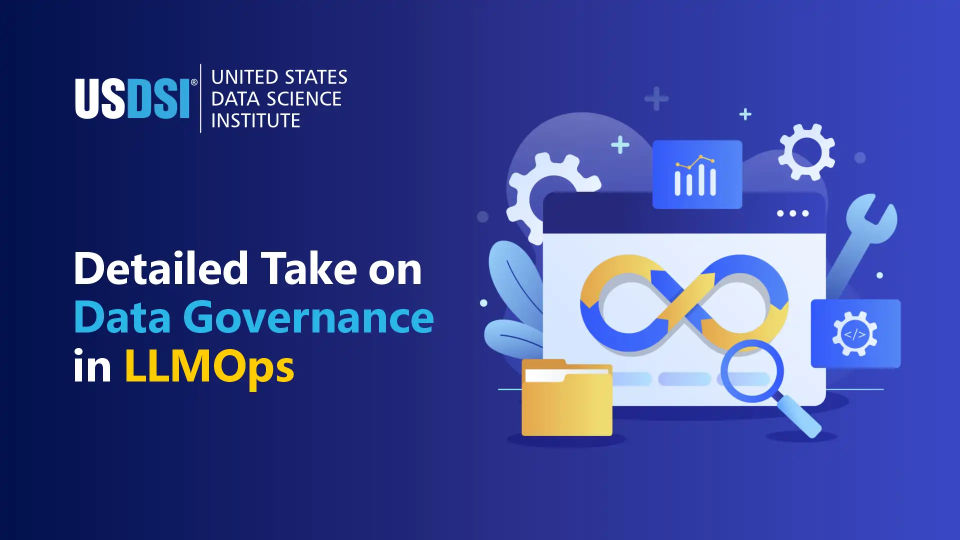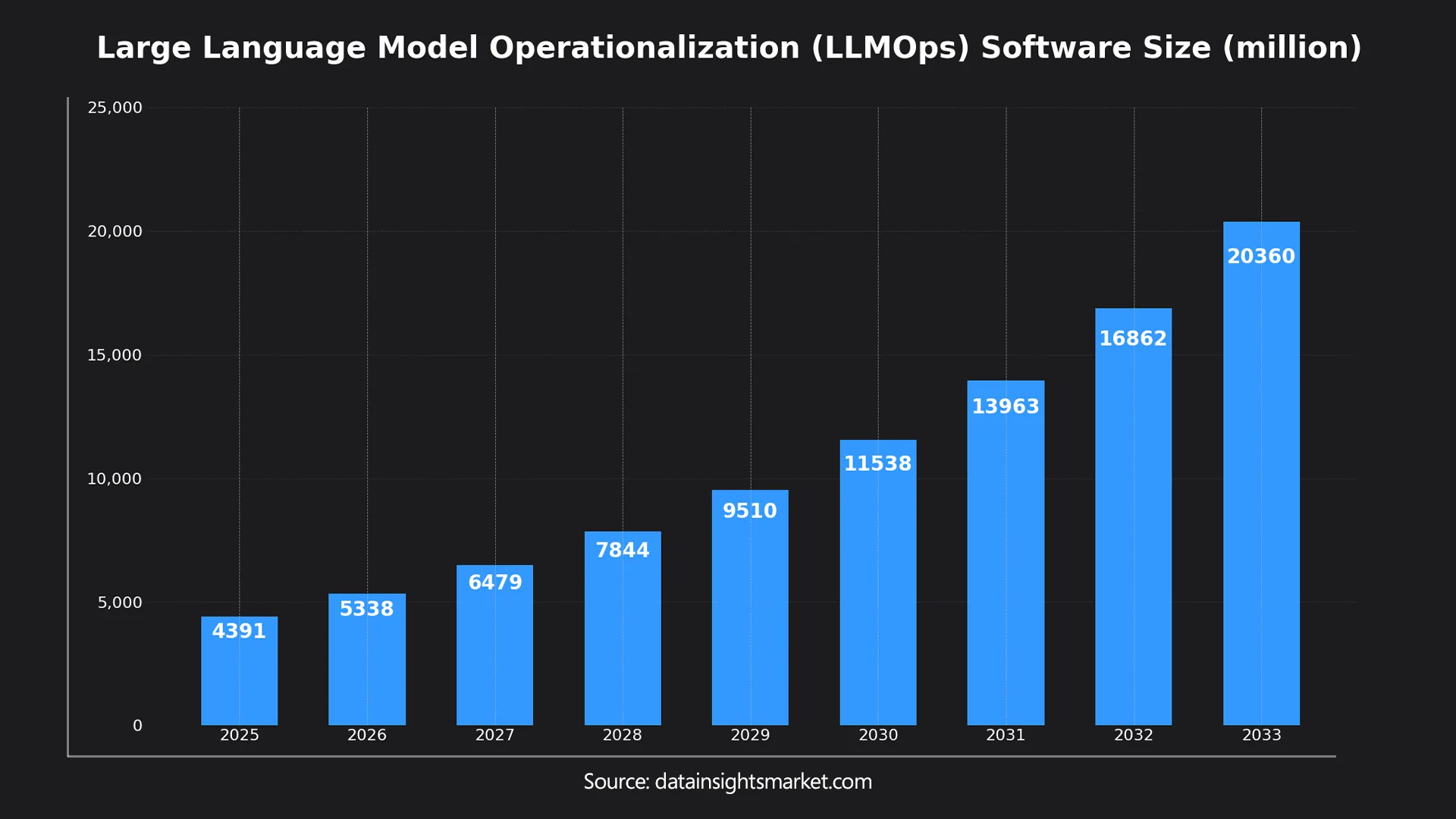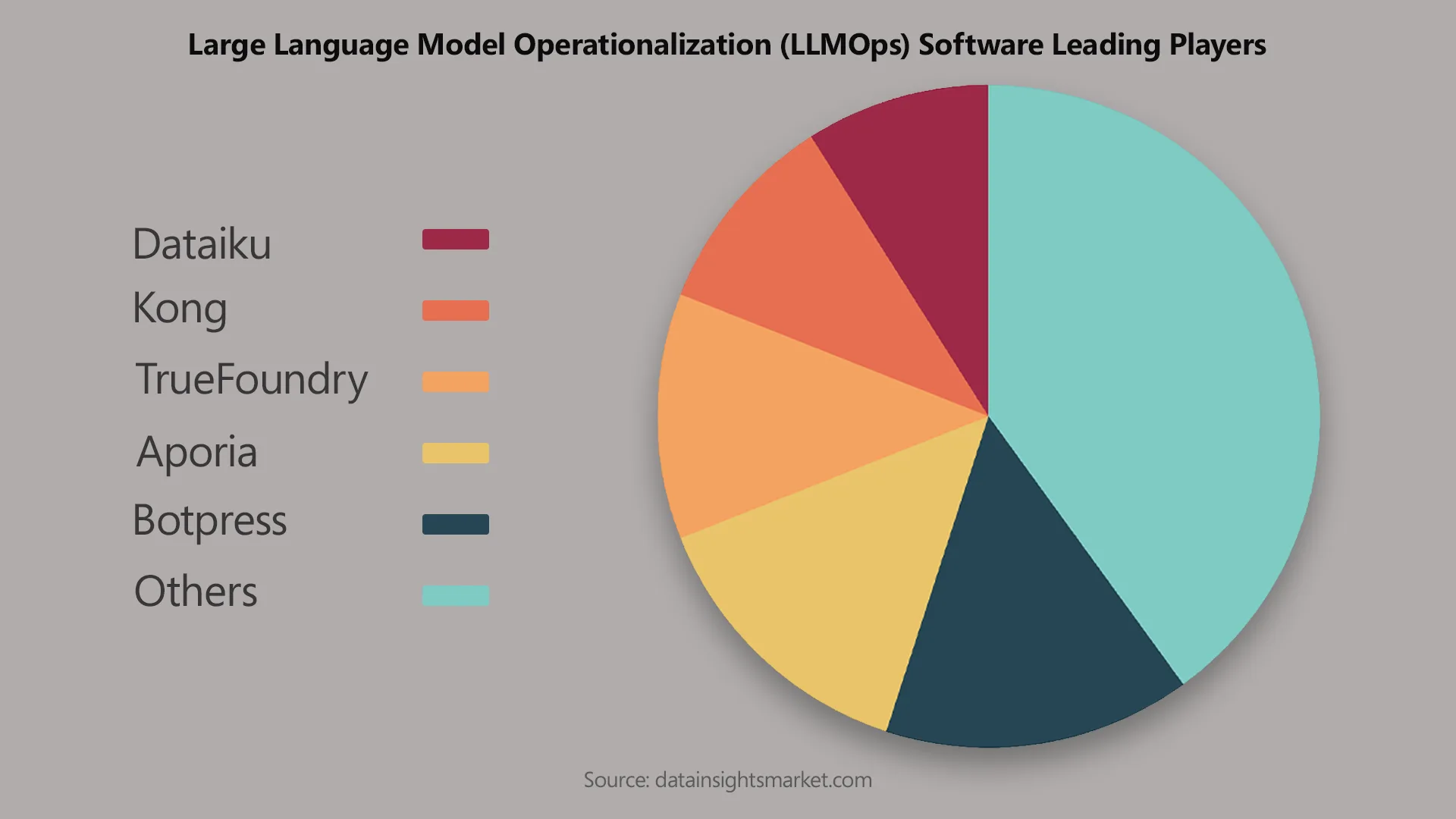
Prioritizing metadata maturity is necessitated as the foundation for scalable and impactful data governance. Recognizing that artificial intelligence is a data governance accelerator and a process that must be governed to monitor ethical considerations and risk must be recognized fully. Integrating data governance and data quality practices to create a seamless user experience and build trust in your data is a must. This is where it all begins!
Talking about the cloud-based segment of the LLMOps software market is poised to dominate, driven by the inherent advantages of scalability, accessibility, and cost-effectiveness. Cloud solutions offer flexibility, allowing businesses of all sizes to leverage powerful LLMs without significant upfront investment in infrastructure. With the large language model operationalization software size projected to reach several billion by 2033 (depicted below), growing at a CAGR of 21.3% (datainsightsmarket.com); it is here to stay and make a big evolution in the way cloud operations are performed business-wide.

Knowing what clicks for your business and what does not make a lot of difference. It is time understanding the cloud operations of your business to yield bigger gains is a mandate. Keeping governance CenterStage, it has become an imperative to comprehend what is trending and what is passe’ when it concerns data governance trends. It would be viable to point the growing popularity of data governance across the globe, with the following highlighted companies leading the wagon as the forerunners of the LLMOps software regime (depicted below).

Let us understand what data governance is, why it matters, what it brings to the table, and what to expect in the future.
Data Governance in LLMOps- The Definition
Data governance in LLMOps allows organizations to guard sensitive data while enabling innovations in artificial intelligence. LLMOps’ operations consist of deployment, management, and optimization of large language models. The year 2025 is the watershed moment for organizations to protect their AI programs from the flapping winds of change brought on by regulations and technology in shaping their already tenuous data science frameworks and privacy.
Privacy and Data Governance- Hurdles Faced
Data governance and data privacy is an elemental requisite for organizations worldwide. AI deployment is critical facet of organizations today, with generative AI applications becoming a commonplace phenomenon. Data leakages and unintended disclosure of personal information has become a nagging challenge in industies such as healthcare, finance, and legal services. Let us look at some of the most prominent hiccups that are faced by organizational privacy and data governnace departments.
LLMOps Fight Back- Ideal Privacy Plan Guidelines
With agentic AI, web agents, generative artificial intelligence, retrieval augmented generation, and massive other LLMs doing the rounds, it has become a prerogative to churn the best possible plan for LLMOps security and privacy. Let us understand what is expected of the organizations to secure and amplify data governance in LLMOps.
5 Best Practices:
1. Regular Audits- Identifying privacy risks in data pipelines
2. Third-party risk monitoring- Assessing risks from third-party APIs
3. Security controls- Implementing access controls and encryption
4. Privacy-preserving techniques- Using differential privacy and federated learning
5. Compliance and monitoring- Ensuring regulatory alignment and incident response
As the data science technology collaborates beyond measures with artificial generative intelligence- data governance and security has become the top priority of every organization. Businesses could protect sensitive data while maintaining ethical AI standards by adopting privacy-preserving techniques, implementing strong security controls, and ensuring regulatory compliance. As the artificial intelligence stance expands over the following years, it shall become a necessity to deploy stringent action plans to safeguard data governance for LLMOps across businesses.
What to Expect in Modern Data Governance?
|
Metadata maturity to become the strong foundation |
AI as an augmentation tool for routine tasks such as data cataloging, etc |
Blurring lines between data governance and data quality |
Data governance to grow beyond regulations |
Zero-trust AI security models |
Automated privacy guardrails |
Expecting the above listed trends shall accord for the situations when LLMs could make up stuff (called hallucinations), or any other stuff. Experimenting with and using generative AI over the years will be elemental to the progress of organizations. Attain what is expected of you to strengthen data governance in LLMOps with the best skills and tools in place. The global data science industry awaits credibly certified data science professionals who can leverage greater security and data governance with AI at the center stage. Be the one to build guardrails for your preferred organization ahead!
This website uses cookies to enhance website functionalities and improve your online experience. By clicking Accept or continue browsing this website, you agree to our use of cookies as outlined in our privacy policy.